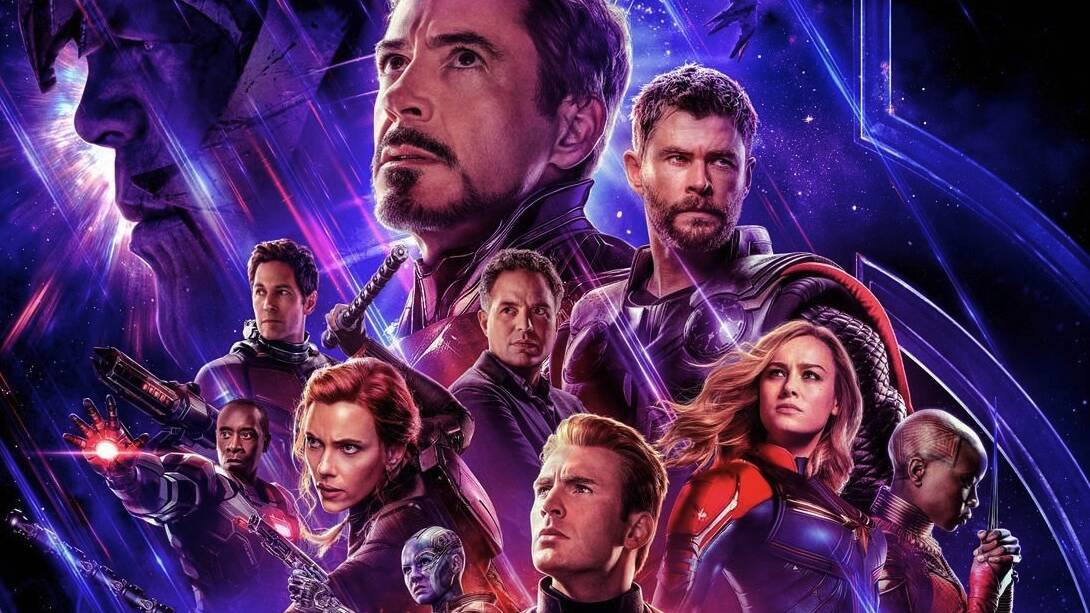As The Avengers: Endgame hits cinemas, fans may find themselves confronting a sense of loss. Endgame concludes an epic storyline spanning 11 years and 22 films. But it also grapples with a familiar anxiety: the fear that our world has already passed the point of no return, and our only remaining option is to mourn what we have lost.
Subscribe now for unlimited access.
or signup to continue reading
Over the past decade, voters in the West have increasingly disengaged from politics. Trust in democracy has plummeted, indicating many people no longer trust their elected representatives to solve deep structural problems such as economic inequality, extremism or climate change. At the same time, engagement with superhero movies (a genre in which a few extraordinary people solve world-threatening problems in just two hours) has remained high, with the Marvel cinematic universe grossing over $A26 billion globally since 2008.

It would be easy to interpret this appetite for superheroes as escapism. But the superhero genre has always been rooted in real-world anxieties. As the war on terror dragged on, the Marvel cinematic universe began to depict problems that could not be solved within the bounds of a single film; time bombs that ticked away in the background only to detonate when it was no longer possible to avoid disaster.
In every Avengers film, the titular superheroes arrive on the scene too late. Tragedy has struck, and all they can do is prevent the situation from worsening. They are frequently hamstrung by the same disagreements and divisions that we see in contemporary politics, especially in the United States. Even the most absurdly powerful heroes seem unable to escape the apocalyptic fears that haunt today's political landscape.
This is perhaps why Avengers: Endgame is so preoccupied with loss. The film deals with the aftermath of the Avengers' worst failure: their inability to prevent galactic supervillain Thanos from destroying 50 per cent of all life in the universe. Endgame's opening scenes revisit the final scenes of the preceding film, Infinity War, in which heroes and their loves ones crumble helplessly into ash.
Where Endgame differs from expectations is that the film's first act is not about a heroic push to save the vanished people. It is about coming to terms with loss, grief and a world that might never feel right again. In a scene that cleverly balances humor with pathos, the Asgardian god-king, Thor (Chris Hemsworth), turns away from his duties to drink beer and play video games, a clear reference to compassion fatigue and trauma.
The Avengers: Endgame is not explicitly about political division, extremism, economic inequality or climate change. Yet, in an emotional sense, it is about all of them, because it reflects a very powerful fear that the world may be too wounded to heal. Ultimately, the central antagonist is not Thanos but the fear that Thanos is inevitable. Although the heroes eventually overcome the paralysis that befalls them and try to stop the inevitable, the film is preoccupied with these questions: what if it is too late? What if we can no longer fix our mistakes?
Perhaps Endgame's most powerful move is to show its heroes using their experience of loss (rather than heroic virtues) as a weapon. When the heroes confront him, Thanos complains that the people are not grateful for the "gift" he has given them, but refuse to accept what they have lost.
In the real world, we can see this refusal to accept loss in #BlackLivesMatter, or the climate activism of Greta Thunberg. The refusal to be grateful for what we have been given drives political movements against inequality; whether it results from prejudice against marginalised people or the cruel illusion of trickle-down economics.
All sides of politics can be motivated by loss - think of white nationalists pushing to reclaim the supremacy of a previous era. But this illustrates the importance of staying engaged and persisting even when it hurts, especially for the most privileged among us.
Unlike other superhero films, Endgame offers no easy solutions. It is still a fantasy of repairing something broken, but it does not pretend that everything will go back to normal if we only come together.
Just as the Marvel cinematic universe will never be the same after Endgame, it is likely that our societies will need to undergo difficult changes to address the challenges we face. Deep wounds leave deep scars. But it is possible to live with scars, and that is what Endgame asks us to do: acknowledge our losses, re-engage and refuse to turn away.
- Katherine Cox is a PhD candidate in literature at the Australian National University researching the Marvel cinematic universe.

